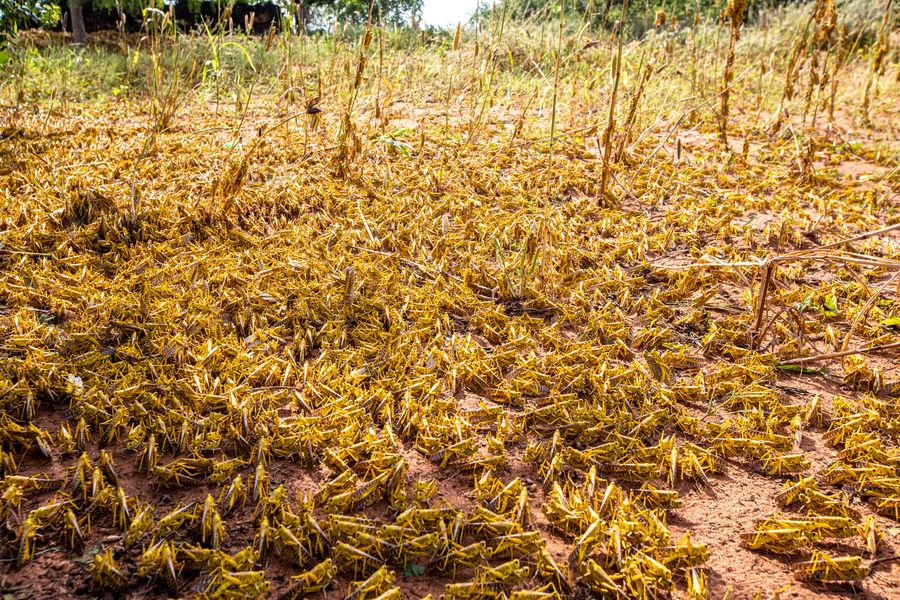
Uganda braces for major locust invasion

Uganda on Wednesday said it was preparing to take on a looming invasion of desert locusts from neighboring Kenya where they are already causing havoc.
The Minister of Agriculture Vincent Ssempijja said that scientists warned that the country would be invaded by billions of the migratory inserts that are hatching in Kenya.
The country, according to the Ministry of Agriculture, has already faced three waves of the destructive insects’ invasion since this year started. The swarms have spread to 26 districts in the country.
Ssempijja, when receiving a donation from China to boost the country’s efforts to contain the insects, said the country is already building up its defense line to limit the impact of the locusts.
China is the latest country to boost Uganda’s effort in fighting the desert locusts. The Asian country flew in about 20,000 liters of chemicals that would be used for both aerial and ground spraying.
The donation also included an assortment of equipment which includes 500 back pack mist dusters, 500 hand-held ULV sprayers, 2,000 medical coveralls, 2,000 medical protective masks and 2,000 pairs of gloves.
Zheng Zhuqiang, China’s ambassador to Uganda, who handed over the donation on Wednesday, is optimistic that the donations will minimize the impact of the destructive insects.
Russia on Monday also donated $3 million to Uganda through the Food and Agriculture Organization (FAO) to boost the desert locust response. The money, according to the FAO, will be used to enhance surveillance, impact monitoring, and supporting livelihood activities in the most affected regions.
“Our contribution will be used for the purchase of pesticides, fuel, vehicles and sprayers, as well as for the employment and training of personnel for the pest’s elimination,” said Alexander Polyakov, Russian ambassador to Uganda.
Antonio Querido, FAO’s Country Representative in Uganda, said the contribution will greatly boost ongoing efforts to stop the spread of the locusts and safeguard the livelihoods of farmers and their families.
“The invasion could have severe consequences for agriculture-based livelihoods and also severely threaten food and nutrition security for about 1.3 million people in Karamoja and Teso regions alone,” Querido said. Karamoja and Teso are in the north eastern and eastern part of the country respectively.
“FAO recently renewed its commitment to addressing this crisis and will revise the appeal for Uganda to include cash assistance to 10,000 households, supplementary livestock feed for 19,000 households and comprehensive re-engagement farming packages for 22,000 households in order to protect and recover livelihoods,” he added.
According to the Ministry of Agriculture, the country’s ongoing efforts have started paying off.
Uganda already deployed over 2,000 soldiers and 835 civilian personnel, including agriculture extension officers. Both aerial and ground spraying is ongoing.
The ministry said efforts to control the pests have averted a potential loss worth about $800 million arising from protection of food and cash crops in the affected areas.






